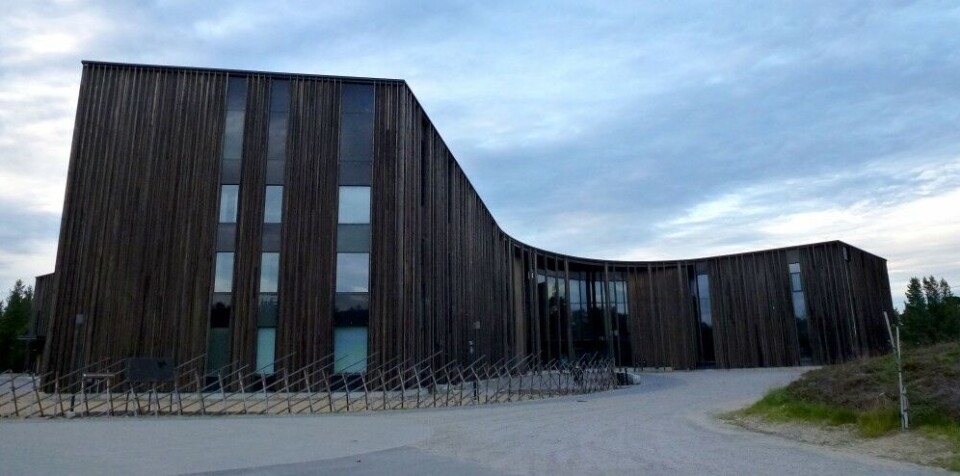
Sámi Parliament of Finland torn on local rights, urban influence
The nearly-monthlong Sámi Parliament elections entered their final week on Monday, and on Tuesday Finland’s national broadcaster Yle published the candidates’ responses to an online election compass. Possible responses to the 20 questions ranged from “strongly agree” to “strongly disagree”.
Replies to the questionnaire showed a wide disparity of viewpoints on two issues central to the livelihood and prerogatives of the European Union’s only indigenous group: the rights of Sámi individuals who have moved away from their native homeland in the northern Lapland region (called Sápmi) and the Sámi Parliament’s efforts to direct funding towards improving the lives of Sámi people in urban centres.
Candidates were torn on the question of whether Sámi who have moved away from Finnish Lapland should have the same rights to the region’s land and waterways; 41 percent said Sámi living elsewhere should definitely be allowed access, while 41 percent said that fishing and hunting rights should be restricted to members of the indigenous group who actually live and work in Sápmi.
Views on the Sámi Parliament’s political involvement in city life also fell into two camps. Thirty-nine percent of respondents said that more should be done to educate and support Sámi living in cities, while 42 percent disagreed.
Finland’s Sámi Parliament elections are organised every four years. This year the elections take place on 2-30 September. The outcome of the vote will be announced on 2 October.
Finland’s previous government under PM Juha Sipilä withdrew draft legislation to ratify ILO Convention 169 on indigenous rights in early 2019. Debate over whether Sámi indigenous rights should be officially recognised has dragged on for 30 years. The government announced in 2017 that the treaty must be ratified “to comply with the Constitution and international law”.
Connection with culture
Two of the 32 Sámi Parliament respondents, Janne Hirvasvuopio from Espoo and Tauno Ljetoff from Inari, said in the Yle compass that they are strongly in favour of including relocated Sámi among those with inviolable, traditional rights to the region.
Both candidates said that Sámi outside of Sápmi must be allowed to exercise their ancient culture.
“We have to consider how people who have moved away – temporarily or permanently – can maintain their own culture,” said Hirvasvuopio. “The Sámi Parliament should also make efforts to increase the attractiveness of moving back.”
Eleven other candidates agreed somewhat that Sámi who live elsewhere should be allowed to make use of their traditional region, with certain restrictions.
“Only for fishing and hunting,” said Utsjoki candidate Veikko Porsanger.
“The rights should be based on the traditions of individual families,” said Anni Koivisto from Utsjoki.
The idea of family rights rather than universal rights was also raised by Utsjoki’s Anne Nuorgam.
Candidates Tuomas Aslak Juuso and Teija Linnanmäki were in clear opposition to the idea of universal Sámi rights to their traditional region. Both said that any Sámi person who moves back to Sápmi should be granted the same rights as all indigenous locals, but not before.
“Inherited rights must be upheld, but other than that it’s only fair that people living in the Sápmi region be in a stronger position when it comes to land use,” said Sammol Lukkari from Utsjoki.
“The various benefits and advantages of local residents are intended to make it possible for people here to make ends meet and raise their families, even though there are very few jobs and the distances between locations are vast,” Tanja Sanila from Inari said.
Indigenous rights in cities
The Yle questionnaire received 31 responses to the query whether the Sámi Parliament should direct more of its funds and power towards urban growth centres, where more than 60 percent of Finland’s Sámi currently reside.
Hirvasvuopio, Porsanger and Linnanmäki were all strongly in favour of increasing the wellbeing of Sámi who live in cities, out of a total 12 who agreed either a little or a lot.
“It is a fact that moving away from Sápmi is necessary for employment and education, because we don’t have the same opportunities as citizens in Southern Finland do,” Linnanmäki said. “During that stage in a person’s life, a connection with other Sámi outside of their homeland is necessary. Otherwise our young people will break with our culture and our languages.”
Hirvasvuopio said that most Sámi-related cultural activities outside of the Lapland nexus are currently managed by NGOs and individuals.
“The Sámi Parliament should seek to set up permanent language education funding to revitalise the Sámi languages,” Hirvasvuopio said.
Candidates such as Inari’s Ljetoff said that the Sámi Parliament’s duty is to the traditional Sápmi homeland, despite how many Sámi live in cities.
“With so few resources to go around, funds must be focused on developing the livelihood and languages of the Sámi region proper,” said Leo Aikio.
Most Sámi Parliament candidates agreed, however, that Sámi people should have access to the Parliament’s services, no matter where they live.
“It is useless to pit Sámi people against each other based on where they live,” said M&A consultant and the former head of Yle’s Sámi language service Pirita Näkkäläjärvi. “Finland’s Sámi Parliament must work for the betterment of all Sámi, as it gets more resources.”
This story is posted on the Barents Observer as part of Eye on the Arctic, a collaborative partnership between public and private circumpolar media organizations.















